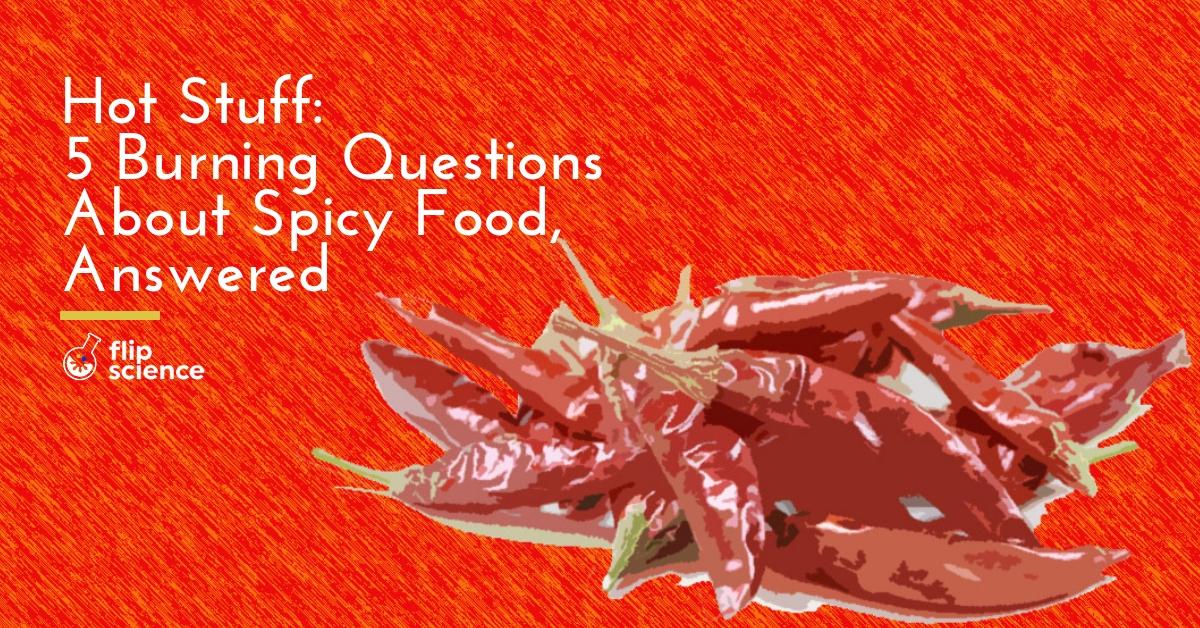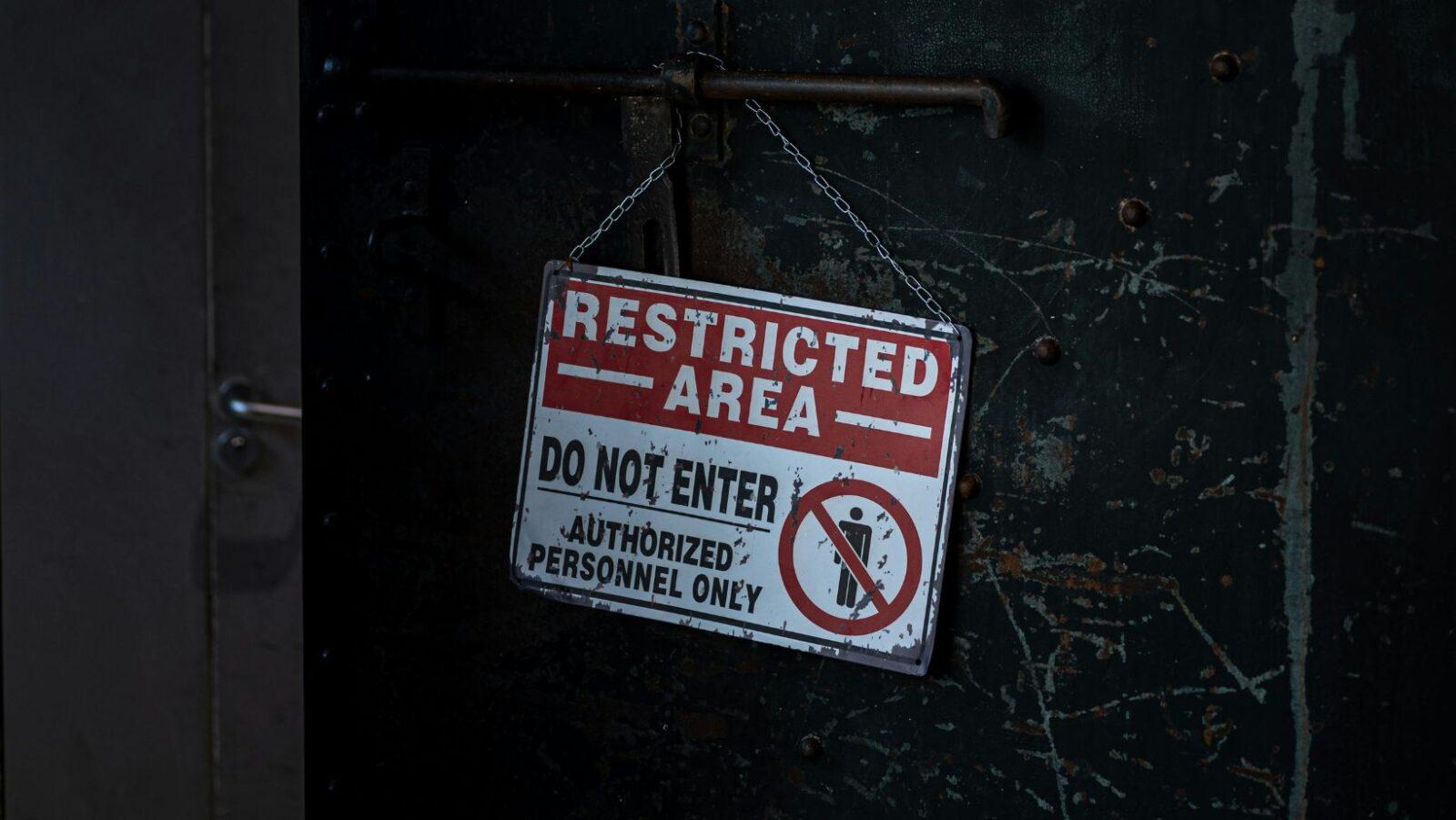• The distinct sensation that comes with eating spicy food is a product of capsaicin, a compound found in chili peppers.
• Spicy foods have been linked to various positive and negative health effects, from weight loss to GERD.
• While some of these misconceptions are easily explainable with science, others aren’t as simple to debunk or answer.
It’s common to see food establishments offering “hot and spicy” variants of their signature dishes. Some even market them as challenges, inviting consumers to finish off their spiciest offerings under a set time limit (and rewarding those who succeed with a free meal and a spot on their Hall of Fame).
Whether you like your meals extra hot or tear up at the faintest hint of a chili pepper, you’re likely aware of the supposed effects of spicy food on the body, both good and bad. Unfortunately, with sufficient repetition, dubious claims become conventional wisdom–and spiciness is no exception.
That said, let’s take a look at five commonly asked questions about the sensation we associate with this fiery fruit. (Yep, you read that right–chili peppers are technically berries.)
Question #1: Will eating spicy food give you an ulcer?
The first thing you need to know about chili peppers is that their spiciness comes from an oil-based compound called capsaicin.
Capsaicin infuses food with a special, spicy kick. (Fun fact: It’s what gives topical medication for pain and muscle relief that distinct cooling effect.) It may also cause a slew of uncomfortable sensations in your body, such as stomach pain and diarrhea. This happens when your nervous system is overstimulated (which typically takes place when you eat too much spicy food). The good news, however, is that moderate consumption doesn’t permanently damage your intestines or stomach.
At one point, people believed that spicy foods cause ulcers. Interestingly, the opposite is true: A 2013 study showed that capsaicin actually protects the body from Helicobacter pylori, the pathogen that causes ulcer. Meanwhile, a study from 2006 showed that capsaicin may contribute to the successful treatment of stomach ulcers.
Question #2: Will eating spicy food give you GERD?
Gastroesophageal reflux disease (GERD), typically referred to as acid reflux, is a tremendously unpleasant condition that affects the lower esophageal sphincter. It may lead to vomiting or even heartburn.
GERD is often mistakenly attributed to spicy food consumption. However, while eating spicy dishes may worsen your GERD, it won’t cause it. Rather, the major factors that affect GERD are the patient’s diet, lifestyle, and state of health (e.g. obesity, pregnancy, etc.). It’s definitely a smart idea to forgo the spicy stuff when you have GERD, though!
Question #3: Will spicy food kill your taste buds?
You might have a food-loving friend who consciously avoids spicy food for fear of permanently damaging their taste buds. However, this is simply not true. While capsaicin can “burn” your tongue and make your mouth go numb, the effect shouldn’t last for more than 24 hours.
But what about the people who’ve been eating spicy food all their lives? If you’ve ever heard them complain about losing their sense of taste, it’s not because of their love for spiciness, but because of the passage of time. Thanks to natural aging and constant use, our taste buds become duller as we grow older.
Question #4: Do some people have a genetic advantage when it comes to spice tolerance?
In the Philippines, the words “Bicol express” bring to mind a steaming bowl of chopped meat in spicy coconut milk. Indeed, the reputation of Bicol as a region of spice-loving people precedes it. However, it’s a bit inaccurate to say that all Bicolanos have a biologically superior tolerance for spiciness.
For starters, there is no conclusive research to prove that people from certain regions of the world are significantly better at handling spicy stuff than everyone else because of genetics.
Second, while genetics can influence one’s resistance to spiciness, said resistance generally comes from prolonged exposure. The “taste” of spicy food is actually its flavor, and it’s your trigeminal system, which detects pain and irritation via its receptors, that controls it. Going back to the Bicol example, since spicy foods are part and parcel of the region’s cultural cuisine, it makes sense that the people there would be exposed to spicy dishes more often–and thus, get used to those spiciness levels over time.
Question #5: Will eating spicy food help you lose weight?
You’ll be relieved to know that the answer to this one, according to science, is yes… with a slight catch.
Aside from setting your taste buds on fire, capsaicin also lights up your brown fat (the fat cells in your body that generate heat and burn calories). And science backs this up: Based on findings from 90 studies on the relationship between capsaicin and weight, spicy foods not only provide a calorie-burning boost–about an extra 50 calories per day, to be more precise–but also douse the flames of your appetite. By burning more and eating less, you’ll certainly lose more weight. However, the effect diminishes as you eat spicy food more often.
Bonus Question: Is spicy food addictive?
Quick answer? No. Capsaicin isn’t like caffeine or nicotine–it won’t get you hooked on spicy stuff. Craving spicy foods is not a sign of addiction. Rather, it’s a sign that you actually like them, period.
Oh, and here’s a hot tip: Mammal’s milk has casein, a fatty compound that binds with capsaicin and washes it away. Thus, you’re better off pairing your spicy meal with a tall glass of milk than a bottle of water.
Cover photo: Pexels
References
- http://www.henryfordlivewell.com/exploring-health-myths-spicy-foods/
- http://www.ncbi.nlm.nih.gov/pubmed/21093467
- https://academic.oup.com/jn/article/139/5/919/4670376
- https://thedocskitchen.com/a-hot-topic-are-spicy-foods-healthy-or-dangerous/
- https://www.britannica.com/plant/pepper-plant-Capsicum-genus
- https://www.epicurious.com/archive/blogs/editor/2014/09/spicy-food-fact-fiction-myths-truth.html
- https://www.health.com/food/dangers-eating-hot-peppers
- https://www.healthline.com/health/five-reasons-to-eat-spicy-foods
- https://www.livescience.com/34213-spicy-food-taste-buds-myth.html
- https://www.ncbi.nlm.nih.gov/pubmed/16621751
- https://www.ncbi.nlm.nih.gov/pubmed/22634197/
- https://www.ncbi.nlm.nih.gov/pmc/articles/PMC3703212/
- https://www.ncbi.nlm.nih.gov/pmc/articles/PMC3169333/
- https://www.popsci.com/science/article/2013-06/fyi-are-people-born-tolerance-spicy-food
- https://www.sciencedirect.com/science/article/abs/pii/S0031938410004063
- https://www.vice.com/en_asia/article/gy3w3q/can-too-much-spicy-food-ruin-your-taste-buds
- https://www.yahoo.com/lifestyle/spicy-food-myths-debunked-133019932.html
Author: Mikael Angelo Francisco
Bitten by the science writing bug, Mikael has years of writing and editorial experience under his belt. As the editor-in-chief of FlipScience, Mikael has sworn to help make science more fun and interesting for geeky readers and casual audiences alike.







